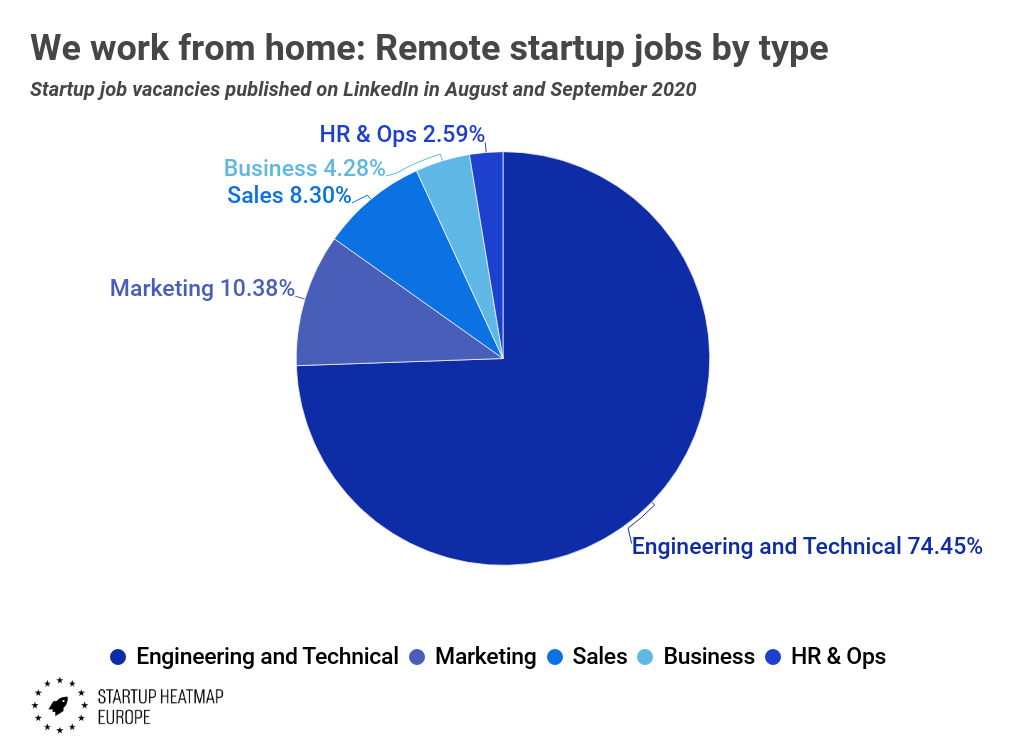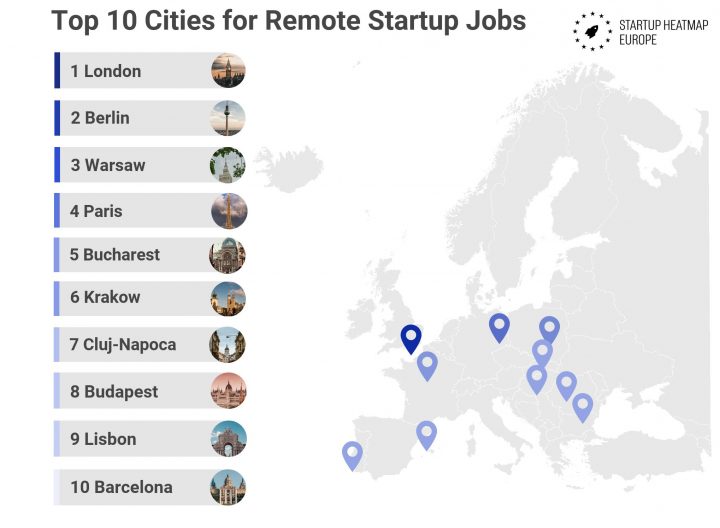The Top European Cities for Remote Startup Jobs
COVID-19 has put many aspects of work to the test. The most popular among them is remote work. Quarantines, lockdowns, and self-isolations have pushed organizations to find effective ways to hire and work remotely. Tens of millions of people have been pushed to adapt to Work-From-Home (WFH), an experiment that struggled to gain traction before the pandemic.
We looked at the European job market for tech startups and found that some places are in high demand for remote work. We analyzed a total of 33,000 job openings published on LinkedIn in 28 European countries in August and September 2020. As keywords, we looked for job openings that mentioned ‘startup’ and ‘remote’, as it is used as a catch-all word for remote-based jobs across languages. Job openings in Linkedin always feature a location, which we used for comparison across Europe.
Our analysis finds western European countries like the U.K. and Germany, home of the top hubs London and Berlin, leading the way in remote work opportunities. Interestingly, Central and Eastern European (CEE) countries follow closely, taking up 4 spots in the Top 10 countries.
A ranking of the top 15 cities with the highest number of remote jobs shows that Western, Central, and Eastern European cities are hubs for remote-work opportunities. Small and Medium-sized ecosystems like Warsaw, Bucharest, and Cluj-Napoca makeup 50% of the Top 10 cities and offer more than 30% of total remote jobs.
Engineering and technical jobs in high demand
Looking at the type of jobs, nearly 75% of the roles are engineering or technical in nature. Marketing, sales, and business-based roles come second close with 15%. Human Resource and Operations-based roles have the lowest percentage, likely due to their requirement for physical presence in the location where the organization is present. Historically, technology and engineering-based remote jobs have been on the rise, also prior to COVID-19.

Close to 30% of the jobs focus on senior and higher organizational roles such as Director, Senior Managers, and Heads. Of these, more than 80% are engineering or technical in nature. Surprisingly, this is in contrast to the common belief that senior-level roles require a physical presence.
About 15% of the roles are mid-level organizational roles like Manager and Lead. Of these, more than 85% are engineering or technical in nature.
Senior-level roles do not require physical presence
With a growing number of organizations going fully remote, permanently remote, and offering remote-only roles, the workplace as we see it is starting to see significant changes. While remote work is increasingly becoming prominent in daily work, the potential for remote work is highly concentrated among occupations, industries, and geographies.
An opportunity to promote talents and gender equality
On the flipside, remote work is leveling the playing field for talent across the globe, offering flexibility, more sustainable and time-saving mobility due to less commuting, and increased independence in decisions. Yet while remote work can in principle lower job market barriers especially for women, the pandemic may even have had a negative effect on gender equality in terms of job losses and unpaid care.
Remote work, a concept that struggled to gain ground in previous years, is here to stay and become an integral part of a globalized workforce. Especially startups, which are pioneering the future of work, play an important role to demonstrate that remote jobs are good jobs.
